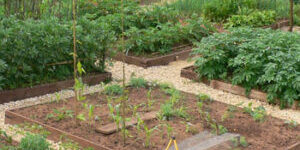You might be asking yourself, how, in November, are we already talking about gearing up for gardening in the spring? The answer relies on this old adage: Your best garden is the one you’re going to plant next year. So, with winter quickly approaching, it’s already time to start planning an early growing season, by getting ready to plant some seeds indoors. No, you won’t plant them indoors yet—unless you’re a greenhouse gardener, or you plan to grow some Kale in a Cold Frame—but you’re going to want to have the right equipment on hand, and then know how to use it to manage your upcoming seedlings. In gardening, planning is essential to success, and here’s a few tips to planting and also caring for seedlings indoors.
Equipment
Start with the seeds. You’re going to need places to put them. First, you’ll need seedling trays or cups—or whatever works best for you, and allows a certain elbows-room space required for growing plants. In those seed trays, you will want some quality potting soil—Rocky Mountain Compost can help you with all your soil needs. Those trays will need a place to sit, unless you plan on putting them somewhere like the kitchen counter; an easy solution is to get a metal organizer shelf, something that can support a little weight—because not only will the shelves need to support the weight of the trays, but also the weight of shop lights (which we’re going to use for a grow light—more on that in a moment). Organize the trays on the shelf with how the plants will grow. You won’t want to put something tall and stalky on a shelf with a lower clearance. To help the plants grow, you can use grow lights or shop lights—shop lights are simpler and can be purchased at your local big box home store. Hang the grow/shop lights from the metal shelves, directly exposing the seeds to the warming lights for at least ten hours every day. If you won’t be home, install a light timer.
If you plan on growing seedlings indoors this winter/early spring, Rocky Mountain Compost is ready to handle all your soil needs. You will also likely need to add compost and soil to your garden beds before you plant them, and Rocky Mountain Compost can assist you there as well.







